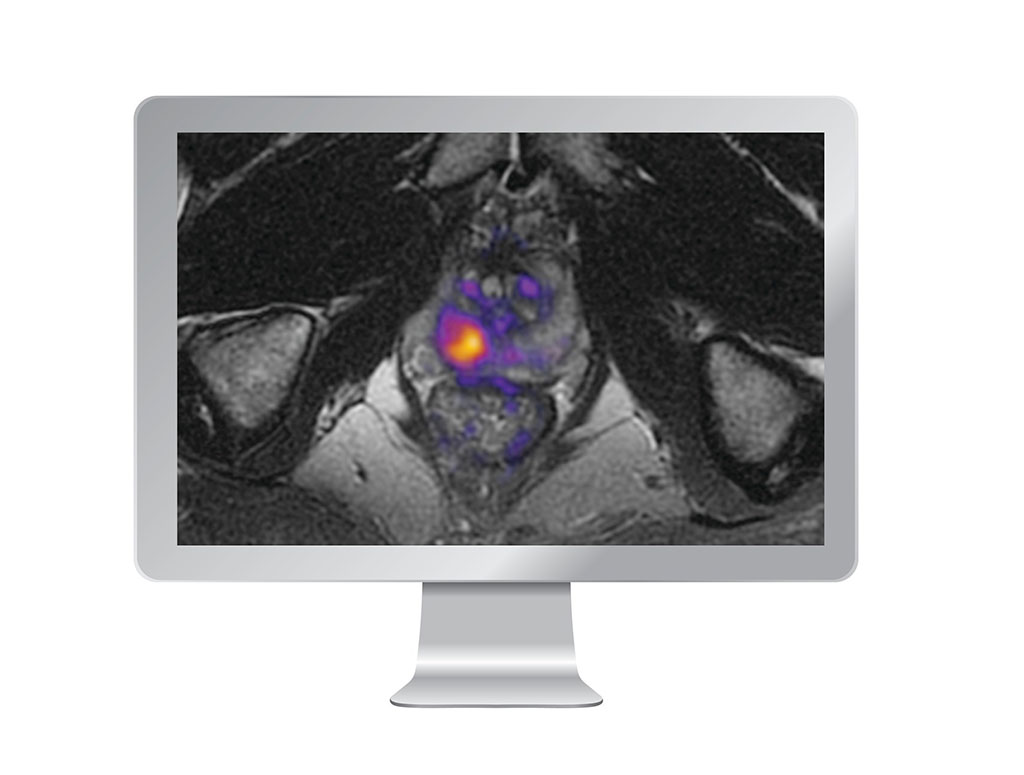Microstructure Imaging Solution Detects Prostate Cancer
By MedImaging International staff writers
Posted on 10 Dec 2019
Novel imaging software based on advanced diffusion magnetic resonance imaging (MRI) increases the visibility of restricted water, a hallmark of cancerous tissue.Posted on 10 Dec 2019
The HealthLytix (San Diego, CA, USA) RSI-MRI+ system uses an advanced multi-compartment diffusion model that combines restriction spectrum imaging (RSI) MRI, biophysical models, and artificial intelligence (AI) algorithms to interrogate prostate tissue microstructure and improve the conspicuity of restricted water diffusion, compared to standard high b-value diffusion-weighted imaging (DWI). AI algorithms then automatically segment the prostate on anatomical T2-weighted images, issuing a quantitative report that correlates with total prostate volume (in mL).

Image: RSI-MRI+ increases the visibility of restricted water in prostate tumors (Photo courtesy of HealthLytix)
The resulting restricted signal map is subsequently fused with the patients anatomical T2-weighted MRI scan to support anatomical localization along with the image segmentation results, all in order to verify segmentation accuracy. RSI-MRI+ can thus provide a general in-vivo framework for estimating tissue properties from DWI data and can provide an in-vivo measure of tumor cells, resulting from its ability to distinguish separable pools of water within tissue, based on their intrinsic diffusion characteristics.
“A key innovation of RSI-MRI+ is that it can better characterize the complexity of water diffusion in cancerous tissue, resulting in better performance,” said Nathan White, PhD, co-inventor of RSI and CEO of HealthLytix. “With early-stage aggressive cancer, we need more sophisticated approaches to separate what's important from what's not important. In cancer, that means separating restricted diffusion from other sources of water diffusion that are less relevant.”
RSI-MRI is designed to improve upon the strengths of conventional MRI while correcting its weaknesses. The goal of RSI-MRI is improved conspicuity of highly cellular tumors by modeling water compartments in tissue made possible by obtaining an extended spectrum of diffusion images. By focusing on the signal arising from intracellular water, the technique in effect images cellularity; highly cellular tumors are thus highlighted. In addition, RSI-MRI corrects the often considerable distortion observed with conventional DWI methods, beneficial in the identification of tumor extension beyond the confines of the prostate.
Related Links:
HealthLytix














